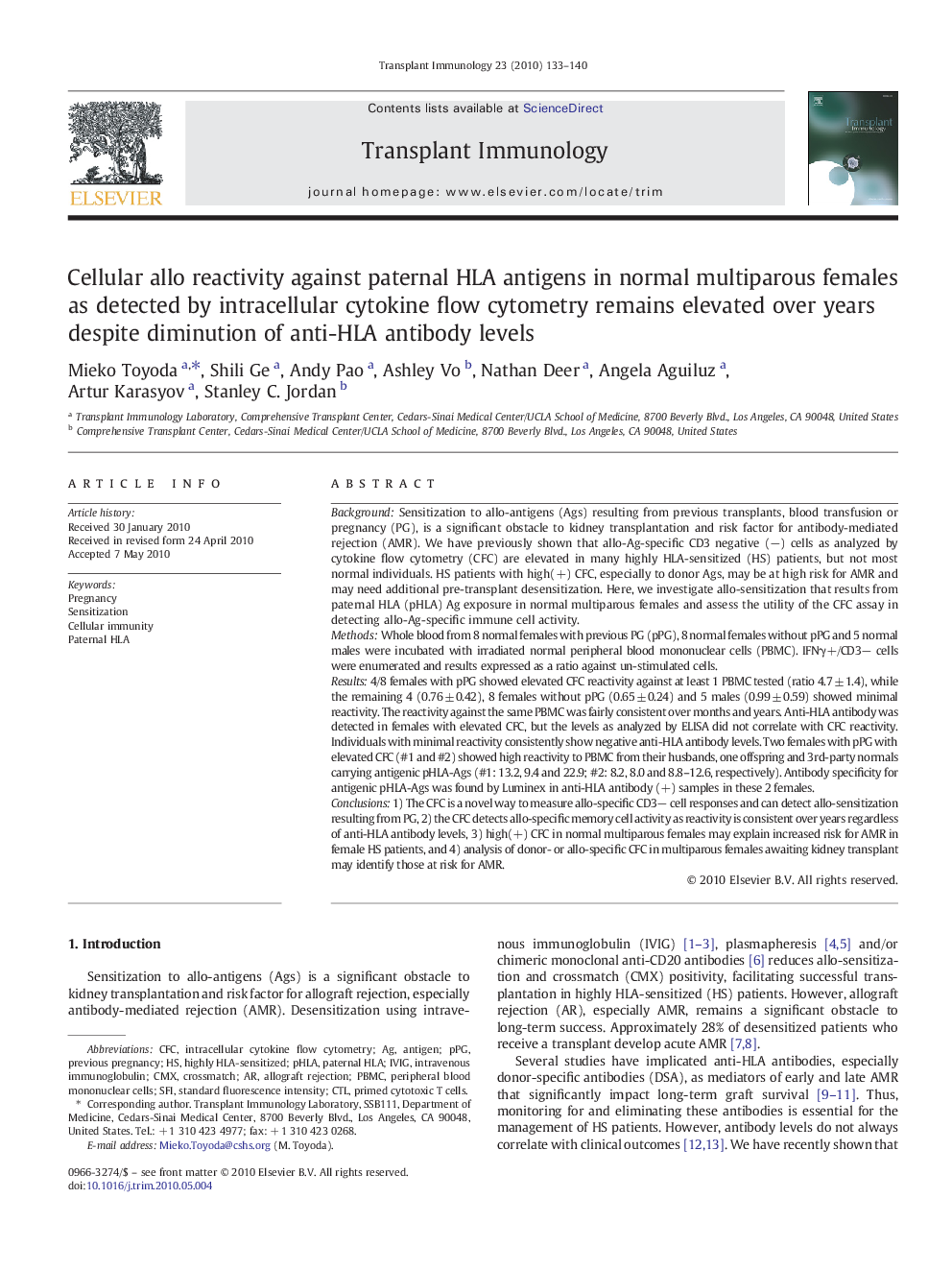| Article ID | Journal | Published Year | Pages | File Type |
|---|---|---|---|---|
| 3392319 | Transplant Immunology | 2010 | 8 Pages |
BackgroundSensitization to allo-antigens (Ags) resulting from previous transplants, blood transfusion or pregnancy (PG), is a significant obstacle to kidney transplantation and risk factor for antibody-mediated rejection (AMR). We have previously shown that allo-Ag-specific CD3 negative (−) cells as analyzed by cytokine flow cytometry (CFC) are elevated in many highly HLA-sensitized (HS) patients, but not most normal individuals. HS patients with high(+) CFC, especially to donor Ags, may be at high risk for AMR and may need additional pre-transplant desensitization. Here, we investigate allo-sensitization that results from paternal HLA (pHLA) Ag exposure in normal multiparous females and assess the utility of the CFC assay in detecting allo-Ag-specific immune cell activity.MethodsWhole blood from 8 normal females with previous PG (pPG), 8 normal females without pPG and 5 normal males were incubated with irradiated normal peripheral blood mononuclear cells (PBMC). IFNγ+/CD3− cells were enumerated and results expressed as a ratio against un-stimulated cells.Results4/8 females with pPG showed elevated CFC reactivity against at least 1 PBMC tested (ratio 4.7 ± 1.4), while the remaining 4 (0.76 ± 0.42), 8 females without pPG (0.65 ± 0.24) and 5 males (0.99 ± 0.59) showed minimal reactivity. The reactivity against the same PBMC was fairly consistent over months and years. Anti-HLA antibody was detected in females with elevated CFC, but the levels as analyzed by ELISA did not correlate with CFC reactivity. Individuals with minimal reactivity consistently show negative anti-HLA antibody levels. Two females with pPG with elevated CFC (#1 and #2) showed high reactivity to PBMC from their husbands, one offspring and 3rd-party normals carrying antigenic pHLA-Ags (#1: 13.2, 9.4 and 22.9; #2: 8.2, 8.0 and 8.8–12.6, respectively). Antibody specificity for antigenic pHLA-Ags was found by Luminex in anti-HLA antibody (+) samples in these 2 females.Conclusions1) The CFC is a novel way to measure allo-specific CD3− cell responses and can detect allo-sensitization resulting from PG, 2) the CFC detects allo-specific memory cell activity as reactivity is consistent over years regardless of anti-HLA antibody levels, 3) high(+) CFC in normal multiparous females may explain increased risk for AMR in female HS patients, and 4) analysis of donor- or allo-specific CFC in multiparous females awaiting kidney transplant may identify those at risk for AMR.
